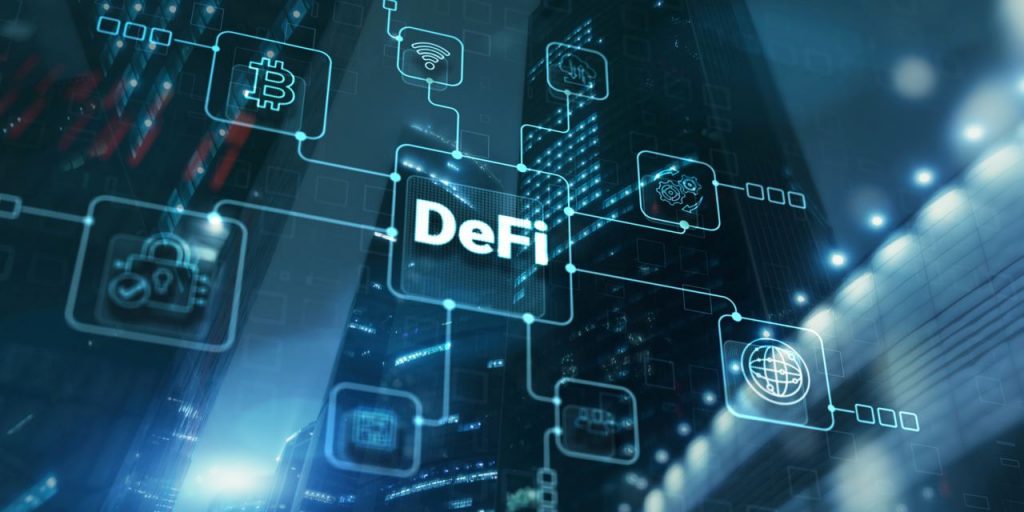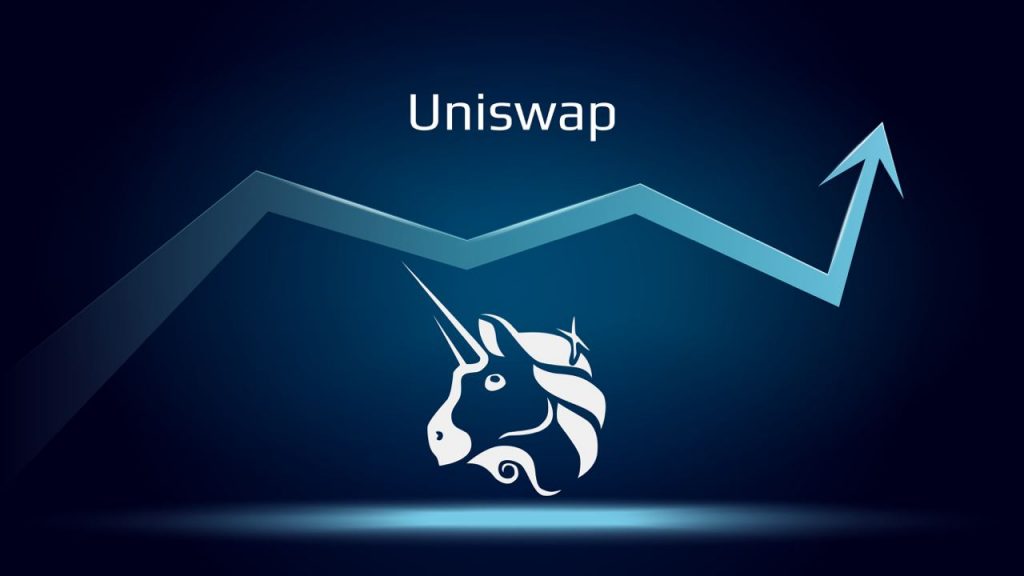
Decentralized Finance (DeFi) is a hot topic in finance and technology and for a good reason. DeFi offers a new and exciting way of conducting financial transactions, leveraging the power of blockchain technology to create a more open, transparent, and accessible financial ecosystem.
With DeFi, traditional finance can be disrupted, and how we interact with money and financial assets can be transformed.
However, DeFi presents unique challenges and opportunities, as with any new technology. From smart contracts and decentralized applications to stablecoins and yield farming, there are many technical concepts to understand.
Moreover, regulatory challenges and concerns around security and scalability remain significant obstacles to widespread adoption.
In this blog, we’ll take a deep dive into the world of DeFi, exploring its potential to disrupt traditional finance and the key technologies and concepts that underpin it. We’ll also examine the challenges and opportunities of DeFi, including regulatory considerations and the potential for cross-chain interoperability.
What is DeFi, and how does it differ from traditional finance?
Understanding DeFi
DeFi stands for Decentralized Finance, a fancy way of saying people are using new technology to create financial services that don’t need banks or other go-betweens. It’s like having a piggy bank, but instead of keeping your money at home, you keep it on a computer network.
One of the most important parts of DeFi is something called smart contracts. These are like computer programs that automatically move money around when certain conditions are met. For example, if you want to lend someone money, you can create a smart contract that says they have to pay you back with interest by a certain date.
Another cool thing about DeFi is that it’s decentralized, meaning no one is in charge. Instead, everyone using it helps keep it running by contributing to the network. This makes it hard for anyone to cheat or manipulate the system.
You can do many things with DeFi, like borrowing and lending money, trading digital assets like cryptocurrencies, and even buying insurance. Some popular DeFi services include peer-to-peer lending, stablecoins, crypto wallets, yield farming, and decentralized exchanges.
Comparison of centralized finance vs. decentralized finance
Decentralized Finance (DeFi) is an innovative financial system built on blockchain technology. It differs from traditional finance, which relies on centralized intermediaries like banks and other financial institutions. In DeFi, smart contracts, decentralized applications (dApps), and digital assets are used to enable trustless transactions without the need for intermediaries.
Blockchain technology, the underlying technology of DeFi, is a distributed ledger that allows for secure and transparent transactions. Smart contracts are self-executing contracts coded to execute once specific conditions are met automatically. DeFi leverages this technology to create trustless transactions that are transparent, fast, and secure.
Advantages of DeFi over traditional finance
Here are seven advantages of DeFi over traditional finance that you should know:
- No Middlemen: In traditional finance, there are many middlemen, such as banks, brokers, and other financial institutions. DeFi removes these middlemen, meaning you can directly manage your money without interference.
- Accessible: Traditional finance can be very exclusive, with many people unable to access financial services due to various barriers. DeFi is more accessible, and anyone with an internet connection can participate.
- Transparent: In traditional finance, knowing where your money is going and how it is being used can be hard. With DeFi, everything is transparent, and you can see exactly what is happening with your money.
- More Secure: DeFi is built on smart contracts, which are self-executing contracts that automatically enforce the rules and regulations of the agreement. This makes DeFi more secure than traditional finance, where human error can lead to mistakes and fraud.
- More Flexible: With DeFi, you can create your financial products and services using smart contracts. This means you can customize your financial tools to meet your needs and goals.
- Lower Fees: Traditional finance can be expensive, with high fees for transactions and loans. DeFi has much lower fees, which means that you can save money when you use these services.
- More Innovative: DeFi is still a new and evolving field, which means that many new and innovative financial products and services are always being created. This means you can access cutting-edge financial tools that are not available in traditional finance.
Types of financial services available in the DeFi ecosystem
There are many types of financial services available in the DeFi ecosystem. Here are some examples:

- Peer-to-peer lending: It lets you lend or borrow money from others directly, without a middleman like a bank. This is done through smart contracts that automatically execute when certain conditions are met.
- Trading: Buy and sell digital assets like cryptocurrencies, stablecoins, and synthetic assets on decentralized exchanges (DEX) like Uniswap. These exchanges use automated market makers (AMM) and liquidity pools to match buyers and sellers.
- Asset management: You can use DeFi protocols to manage your digital assets, such as yield farming and asset management protocols. This allows you to earn interest on your assets and invest them in different projects.
- Insurance: Allows you to buy insurance against risks like smart contract failures, exchange hacks, etc. This is done through insurance protocols that use smart contracts to pay out claims automatically.
- Other services: There are many other DeFi services available, such as flash loans, margin trading, non-custodial solutions, and more.
Popular DeFi applications and protocols

DeFi protocols are exciting because they allow people to do things with their digital assets that they couldn’t do before, like earning interest or borrowing money without a bank. Some of the popular protocols are as follows:
DeFi applications and protocols:
- Uniswap is a protocol that allows people to trade different cryptocurrencies without needing a centralized exchange. This means you can trade coins with other people directly without going through an intermediary.
- The compound lending protocol allows people to earn interest on their digital assets. Instead of just holding your assets and hoping they increase in value, you can lend them and earn interest.
- MakerDAO is a protocol that allows people to borrow stablecoins and cryptocurrencies pegged to the value of something stable like the US dollar. This way, people can use cryptocurrency to buy goods and services without worrying about their coins fluctuating too much.
Risks and challenges associated with DeFi

DeFi is an exciting and innovative space, but there are some risks and challenges that users should be aware of.
- One of the biggest risks is smart contract vulnerabilities, which can lead to hacking and theft. It’s important to carefully research and audit the smart contracts used in DeFi projects.
- Another challenge is the lack of regulation, making it difficult to seek recourse in case of fraud or other malicious activities. Users should also be aware of the high volatility of digital assets and the potential for market manipulation.
- The complexity of DeFi protocols and the need for technical expertise can make it challenging for some users to participate.
Regulatory implications of DeFi
DeFi is a new and exciting area of finance that is rapidly evolving. As a result, there are currently few clear regulatory frameworks governing DeFi. This challenges regulators, who are struggling to keep up with the pace of change.
However, some potential risks associated with DeFi, such as fraud and money laundering, could prompt regulators to take action. In the meantime, users should be aware of the risks and take steps to protect themselves.
Potential future developments for DeFi and impact on the wider financial industry
If we talk about the potential future development for DeFi, cross-chain interoperability will likely grow, allowing different DeFi platforms to connect. This will help to increase liquidity and improve the user experience. Another area of growth is asset management protocols, which will make it easier for users to manage their digital assets.
In the long term, DeFi can potentially disrupt the wider financial industry by offering cheaper, faster, and more accessible financial services. However, how regulators will respond to this new form of finance remains to be seen.
Conclusion

In conclusion, DeFi has disrupted the traditional financial industry by offering numerous advantages such as decentralization, accessibility, and transparency. Using smart contracts, dApps, and digital assets, DeFi has created new opportunities for peer-to-peer lending, stablecoins, yield farming, and more. Liquidity pools, decentralized exchanges, and governance tokens have given users greater control and flexibility over their financial assets. At FortySeven we can help you in terms of implementation technology into your project, to get a free consultation, contact us.
Looking to the future, the potential developments in DeFi are vast and could significantly impact the wider financial industry. Cross-chain interoperability, asset management protocols, flash loans, insurance protocols, and margin trading are some areas where DeFi could continue to innovate and disrupt. It is an exciting time for DeFi, and it will be interesting to see how it continues to evolve and shape the future of finance.



